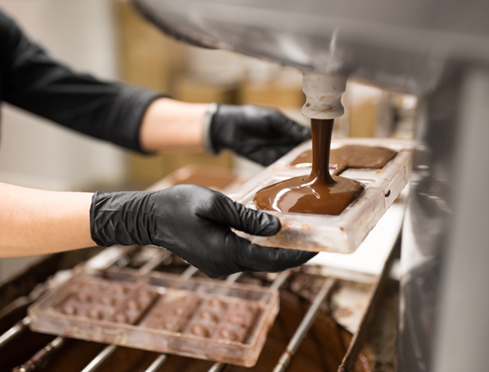Introduction
In the vibrant and busy world of contract food manufacturing, ensuring secure and reputable production is of utmost importance. With the boosting demand for high-quality food products, it is crucial for contract makers to stick to rigorous guidelines and contract food manufacturing standards. One such standard that plays a crucial duty in ensuring the safety and dependability of contract food manufacturing in Australia is Excellent Manufacturing Practices (GMP). In this post, we will certainly check out the importance of GMP in the context of contract food manufacturing in Australia.
Contract Food Production: An Overview
Before diving right into the role of GMP, allowed's very first recognize what contract food manufacturing requires. Contract food manufacturing refers to the procedure where a company contracts out the manufacturing of its food products to a specialized supplier. This enables firms to focus on various other aspects of their business, such as advertising and marketing and circulation, while leaving the production process to experts.
In Australia, contract food manufacturing has obtained considerable grip as a result of its many advantages. It allows companies to take advantage of the proficiency and resources of knowledgeable producers, lowers functional expenses, and supplies access to state-of-the-art centers. However, with these benefits come various difficulties, including preserving item high quality, sticking to safety and security guidelines, as well as ensuring consistency throughout the production process.
The Value of GMP in Agreement Food Manufacturing
Good Production Practices (GMP) are a set of standards that outline the minimum demands for guaranteeing risk-free and also trustworthy production in different industries, including food production. These methods include all elements of manufacturing, from center design to workers training and also product testing.
GMP plays a crucial role in contract food manufacturing by establishing quality control actions that secure consumers from possible health hazards. By adhering to GMP requirements, agreement makers can guarantee that their procedures are effective, consistent, and also certified with regulatory needs. This not just safeguards public wellness however also enhances the credibility as well as trustworthiness of both the supplier and the brand they are creating for.
The Crucial element of GMP in Contract Food Manufacturing
To understand how GMP makes sure risk-free and reliable contract food manufacturing in Australia, allow's explore several of its key elements:

1. Center Layout and Maintenance
Proper facility design is essential to minimize the dangers of contamination and also make certain a hygienic manufacturing setting. GMP guidelines define needs for design, building and construction materials, air flow, illumination, and waste management systems. Routine maintenance and cleaning are additionally critical to avoid the accumulation of microorganisms or contaminants.
2. Worker Training
Well-trained employees are the backbone of any successful contract food manufacturing operation. GMP highlights the significance of training staff members on hygiene methods, proper handling of equipment as well as active ingredients, allergen control, and individual protective measures. Ongoing training programs ensure that staff members stay updated with sector best practices.

3. Basic Material Control
GMP mandates rigorous control over resources used in the manufacturing process. This includes validating vendor qualifications, conducting inbound inspections for quality control, carrying out proper storage space procedures, as well as preserving traceability throughout the supply chain. Adhering to these controls helps avoid contamination and also ensures that only safe as well as top quality components are used.
4. Product Checking and Quality Assurance
Regular item testing is an indispensable part of GMP to validate that items meet required requirements and safety standards. This includes microbiological screening, chemical evaluation, sensory evaluation, as well as shelf-life research studies. By conducting detailed screening at various stages of manufacturing, contract suppliers can identify prospective problems early and take restorative activities promptly.
5. Paperwork and also Record-Keeping
Accurate documents is essential to show compliance with GMP standards. This includes maintaining documents of resources vendors, tools calibration, employees training, cleansing schedules, set production records, as well as product release paperwork. Great paperwork techniques allow suppliers to map any issues or inconsistencies as well as take appropriate restorative actions.
6. Audits as well as Inspections
Regular audits as well as examinations are conducted by regulatory bodies or third-party companies to make sure conformity with GMP requirements. These analyses assess the performance of an agreement supplier's top quality administration system, recognize locations for improvement, and also supply guarantee that all necessary controls remain in place.
FAQs regarding GMP in Contract Food Manufacturing
What is the function of GMP in contract food manufacturing? GMP plays a critical function in making sure safe and also dependable contract food manufacturing by developing standards for quality assurance, center layout, employees training, product screening, documentation, as well as audits.
How does GMP add to customer safety and security? By sticking to GMP criteria, agreement manufacturers can decrease the threats of contamination as well as guarantee that food meet required security requirements. This safeguards consumers from prospective carcinogen connected with hazardous food.

What are the repercussions of non-compliance with GMP standards? Non-compliance with GMP standards can have severe repercussions, including item remembers, legal charges, damage to brand reputation, as well as potential harm to consumers' health. It is important for contract suppliers to prioritize adherence to these standards.
Is GMP necessary for contract food manufacturing in Australia? Yes, GMP is obligatory for all contract food makers in Australia. The Australian government has carried out strict regulations to ensure that all food products satisfy the highest possible safety and security as well as top quality standards.
How can get producers apply GMP effectively? Contract makers can apply GMP successfully by buying robust high quality monitoring systems, performing normal training programs for employees, working together with trusted vendors, preserving exact documents, as well as going through normal audits as well as inspections.
Can GMP certification boost an agreement manufacturer's reputation? Yes, getting GMP certification demonstrates a contract producer's commitment to creating safe as well as premium food products. It improves their reputation as well as reputation among clients and customers alike.
Conclusion
In the realm of contract food manufacturing in Australia, adhering to Good Manufacturing Practices (GMP) is necessary for ensuring risk-free and also trustworthy production. GMP standards incorporate different aspects of the production procedure, including center design, employees training, raw material control, product screening, documentation, as well as audits. By carrying out and also preserving these techniques, agreement makers can shield customers from potential carcinogen, improve their credibility, and contribute to the overall safety and security and high quality of the food market. As the demand for contract food manufacturing remains to grow, it is essential for manufacturers to focus on GMP compliance to fulfill regulative requirements as well as go beyond consumer expectations.